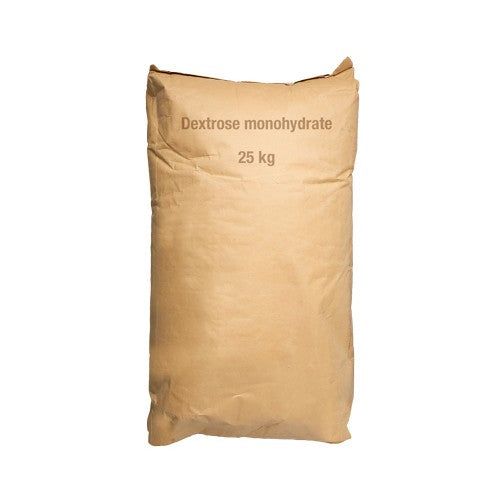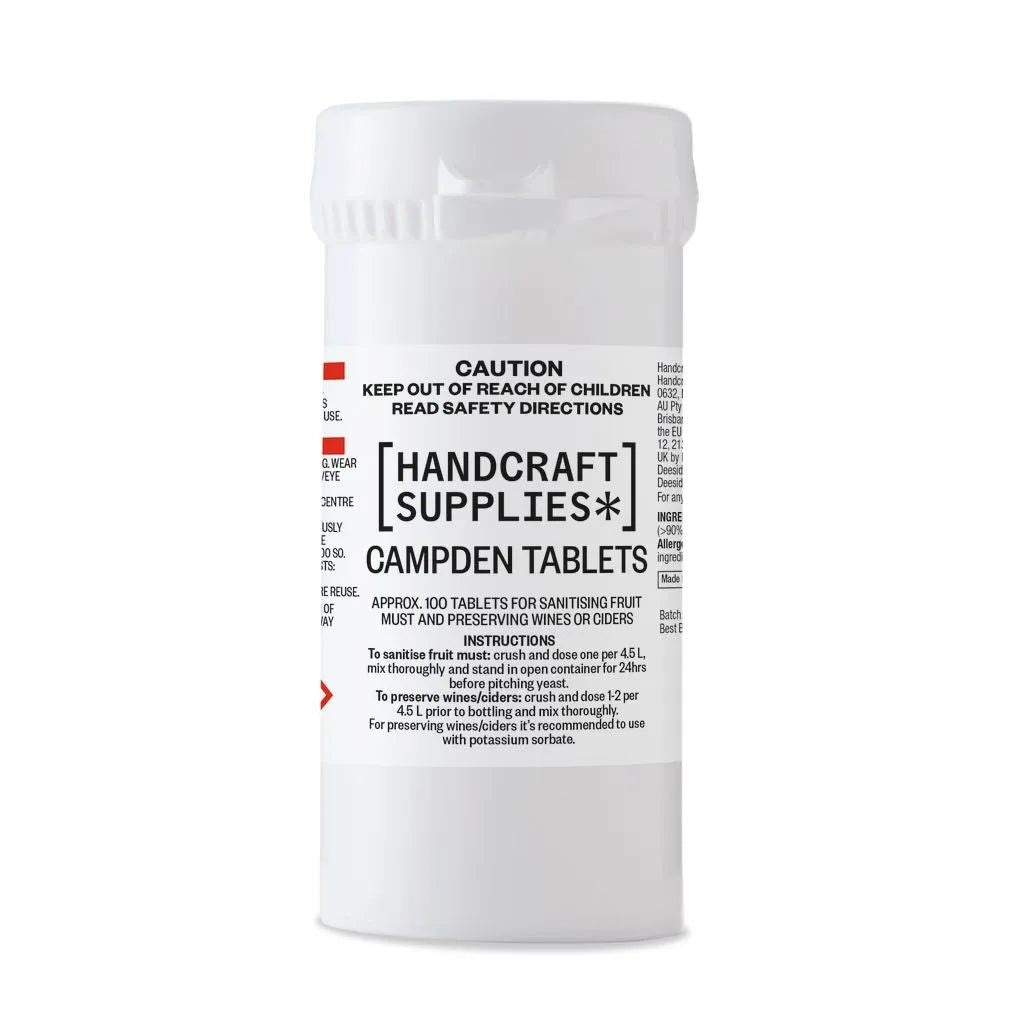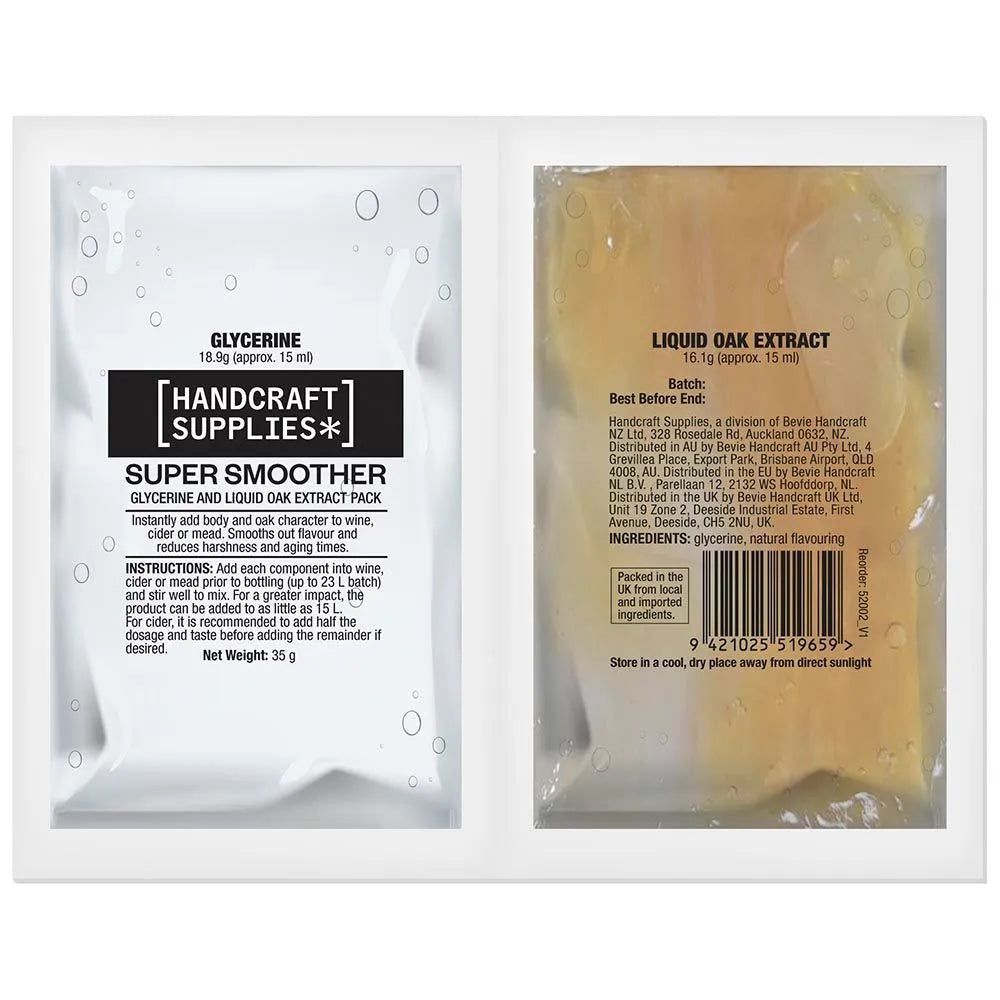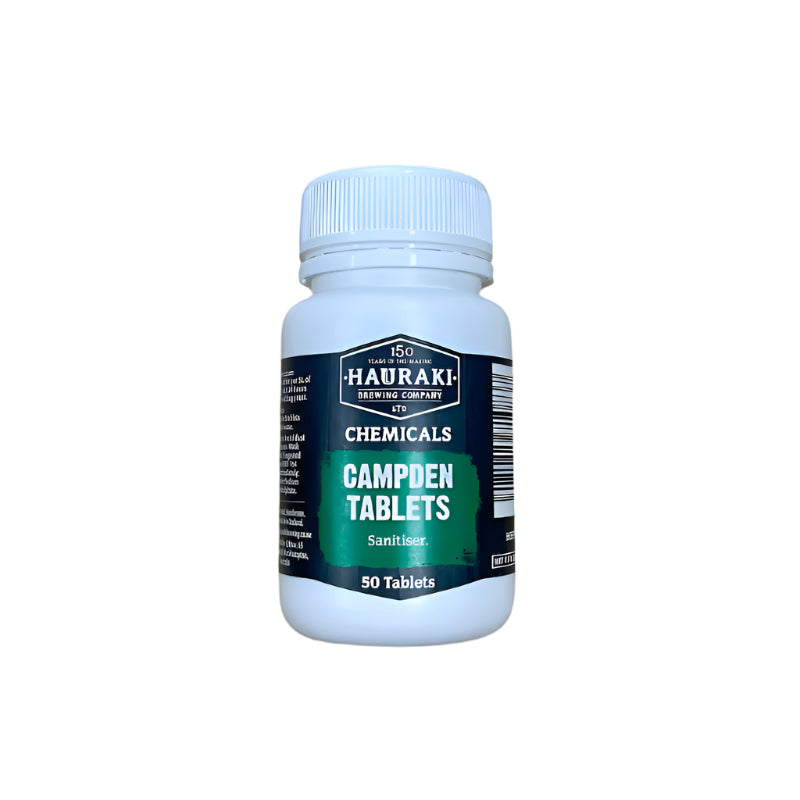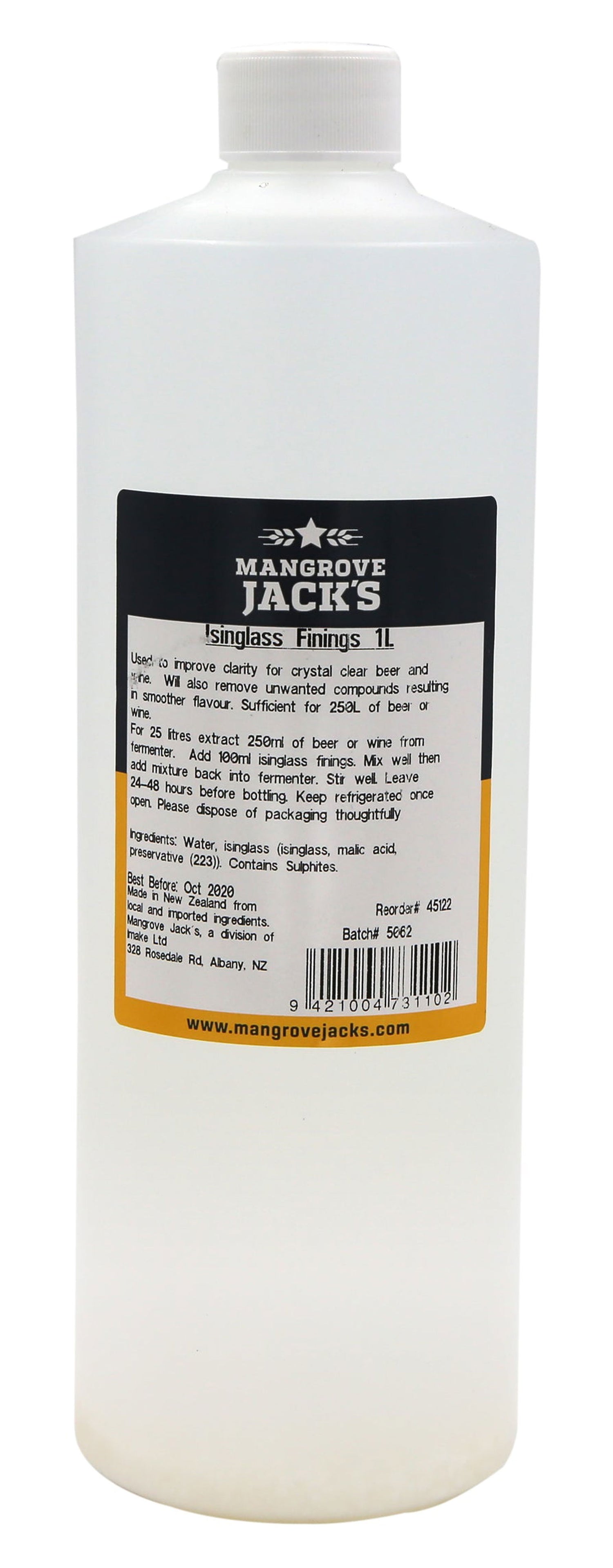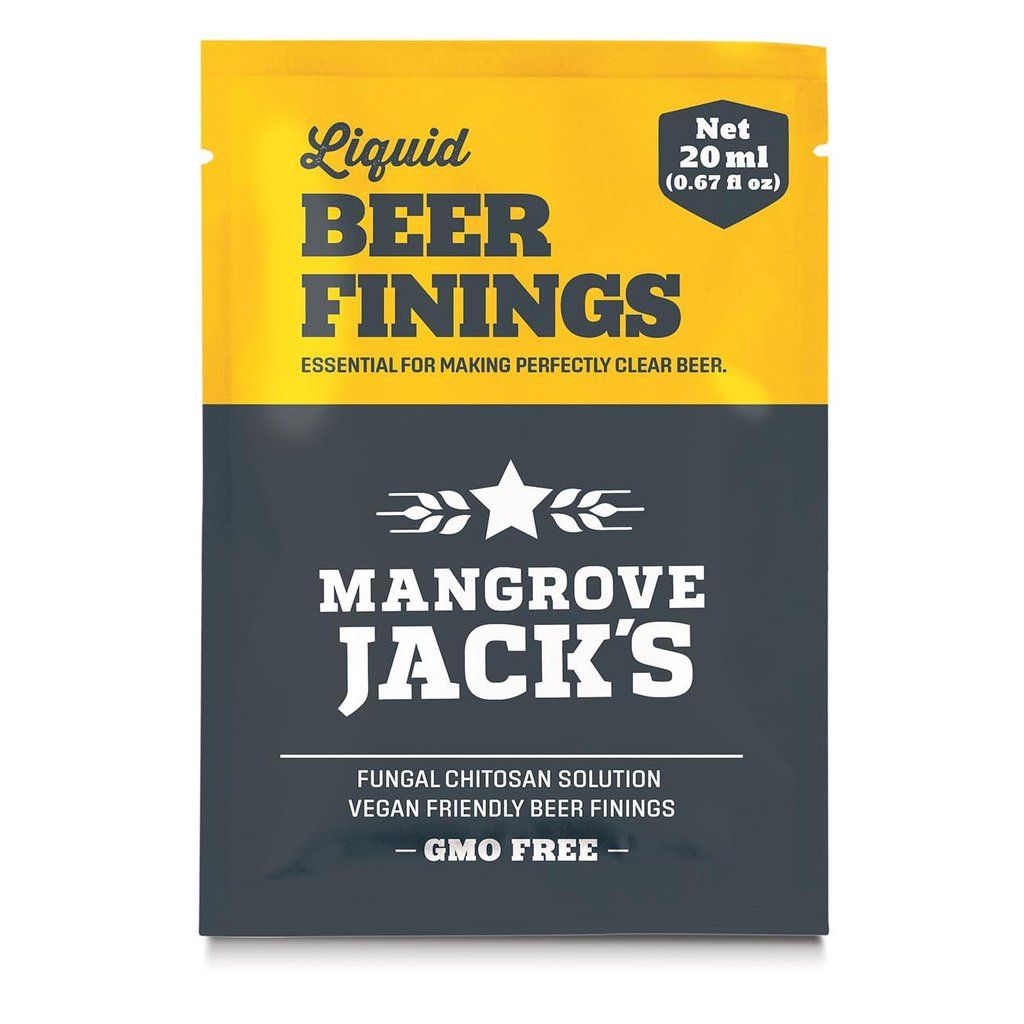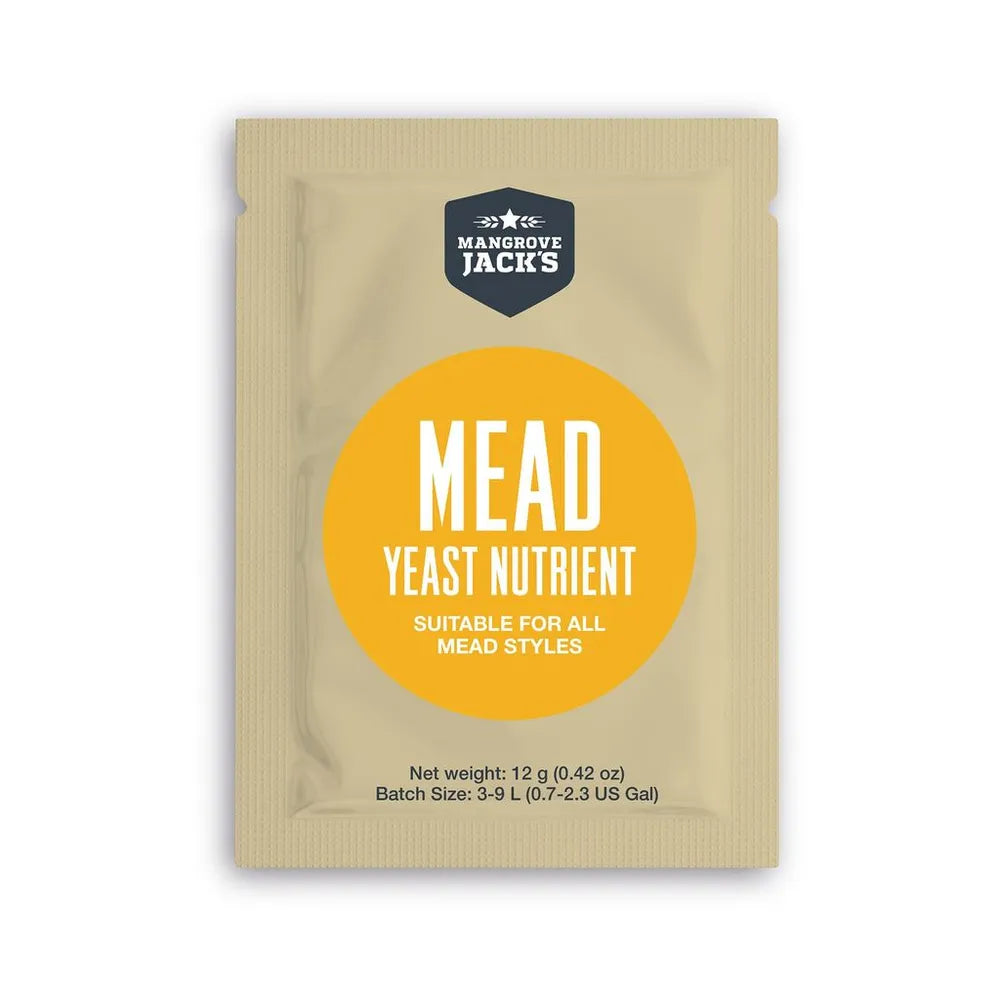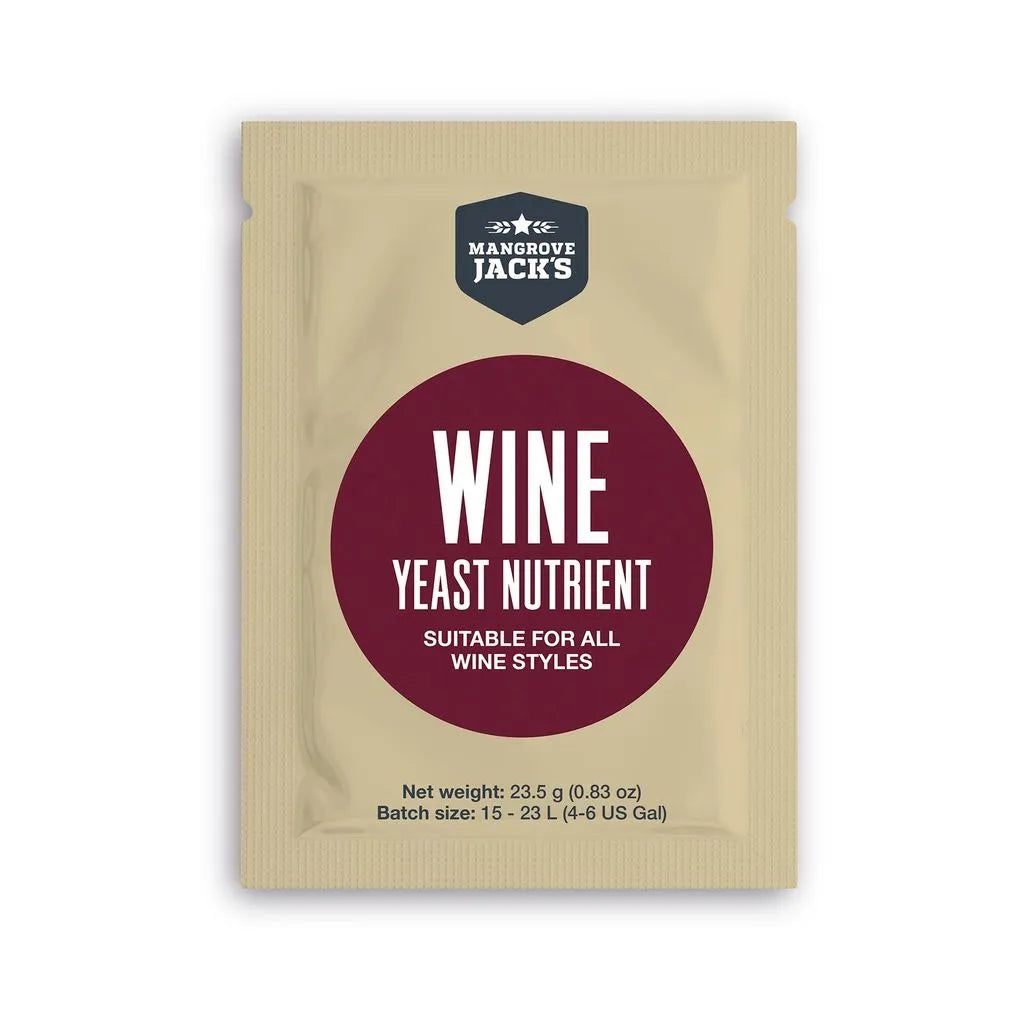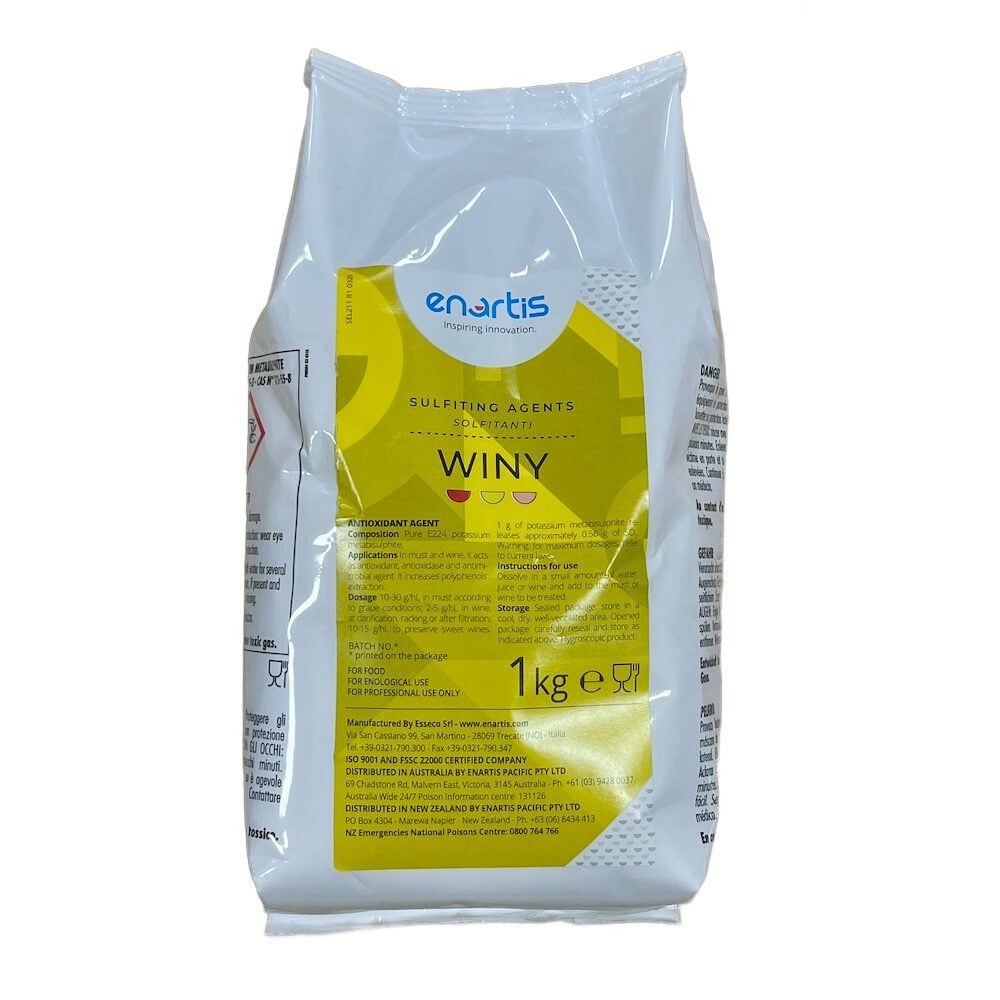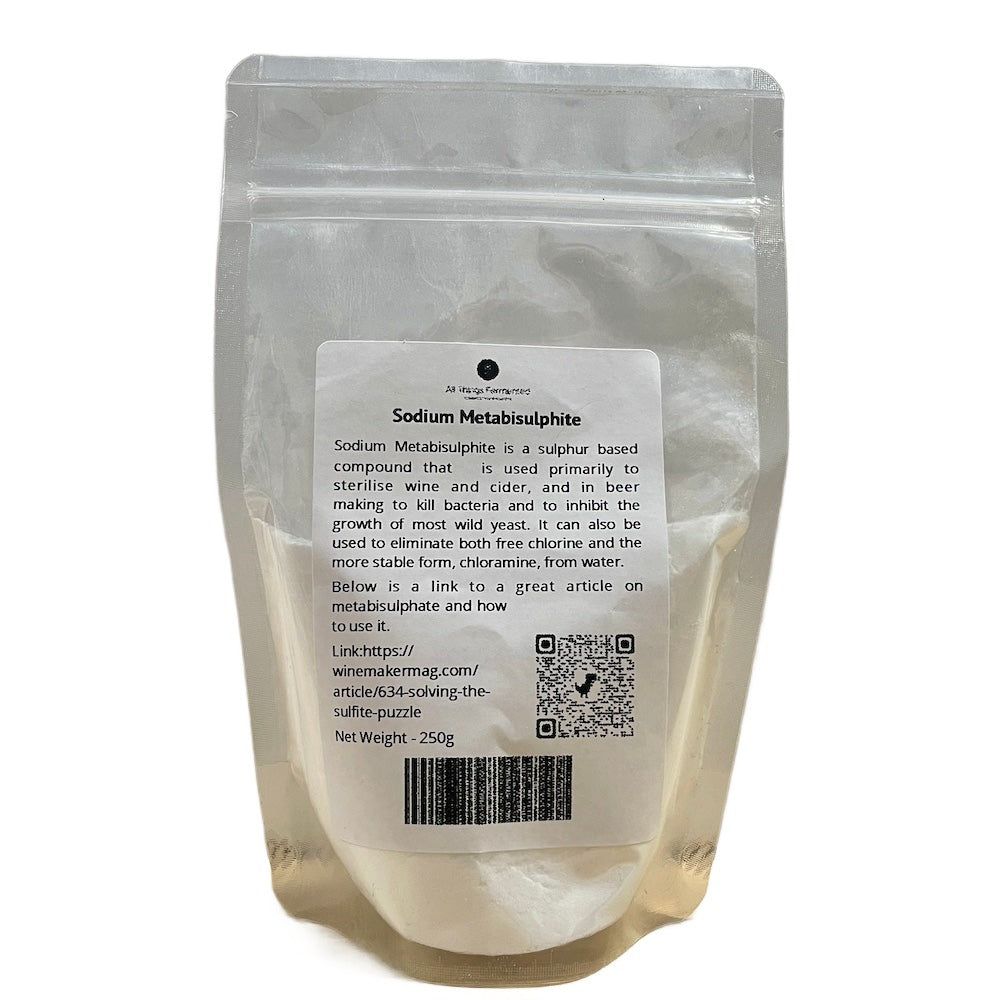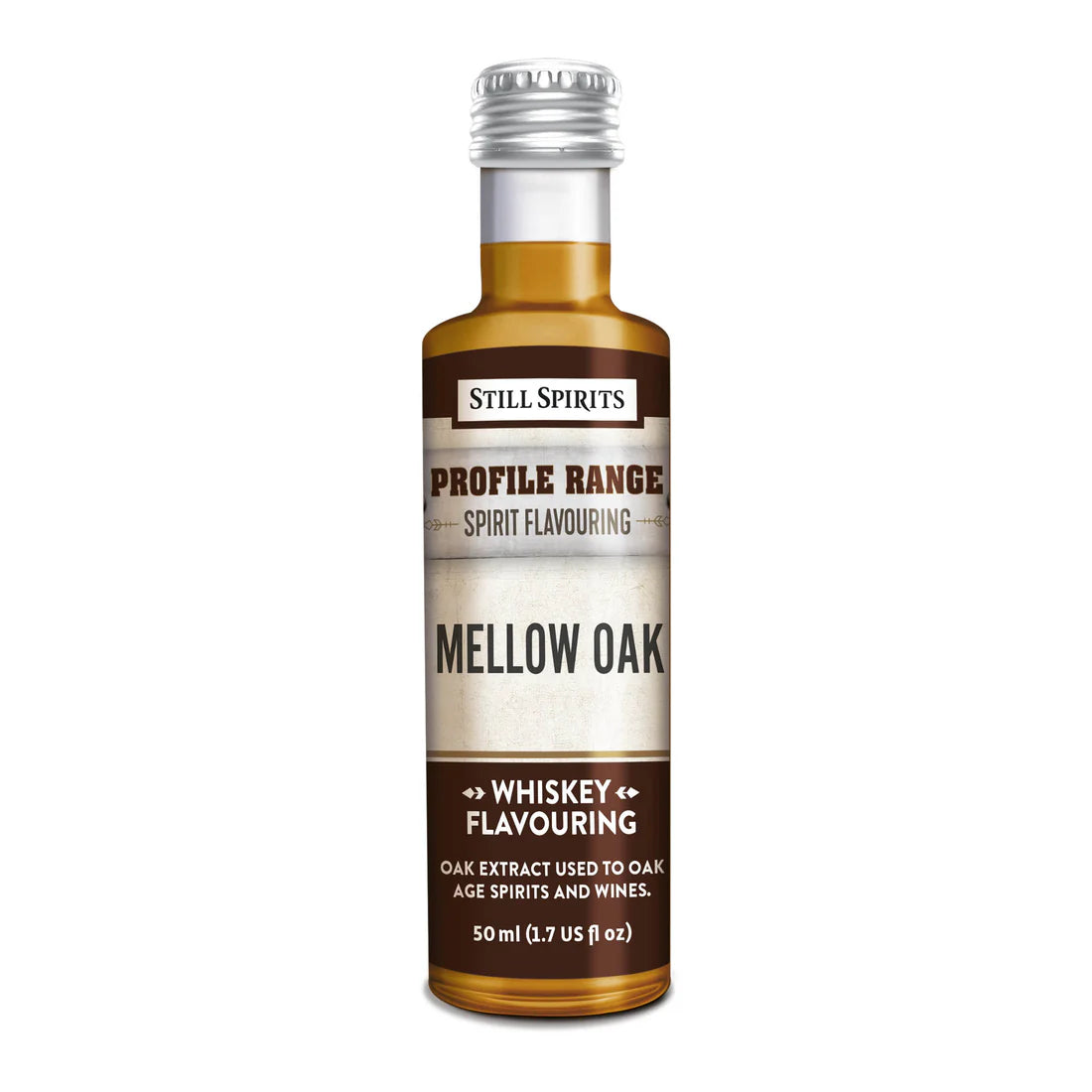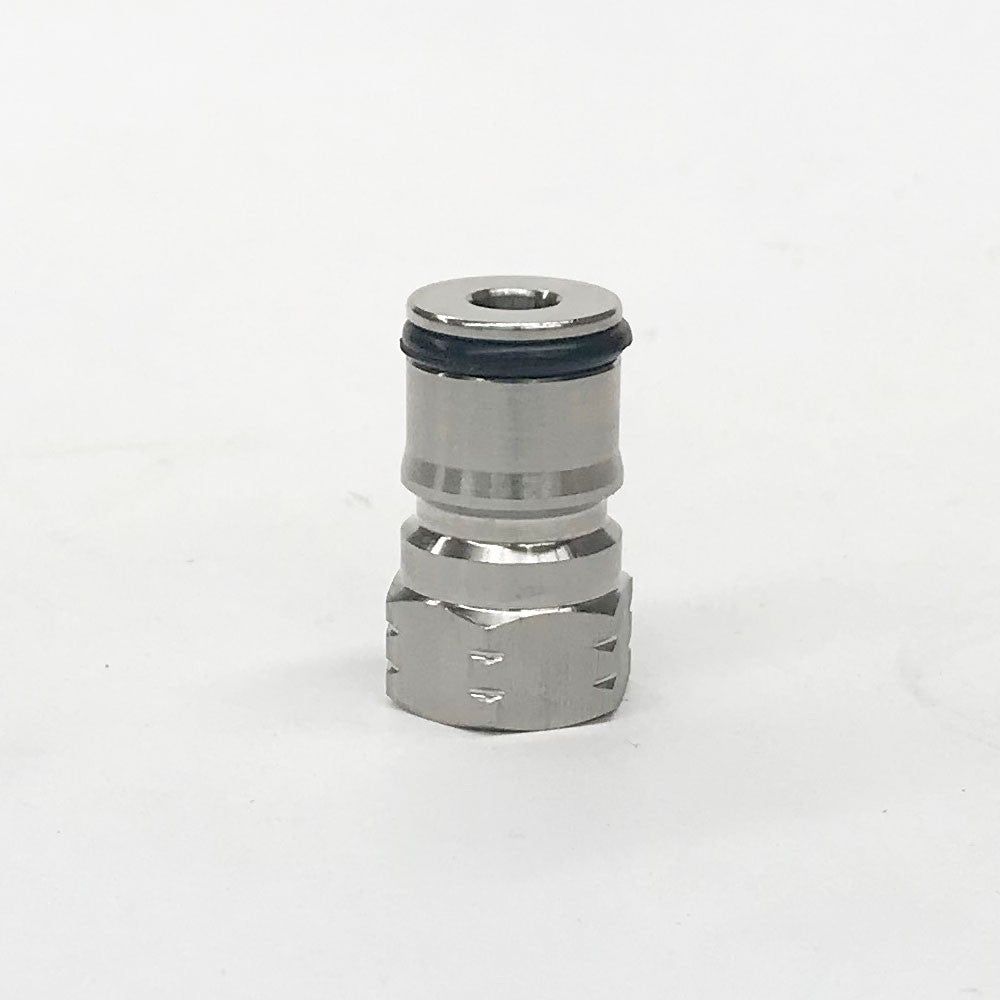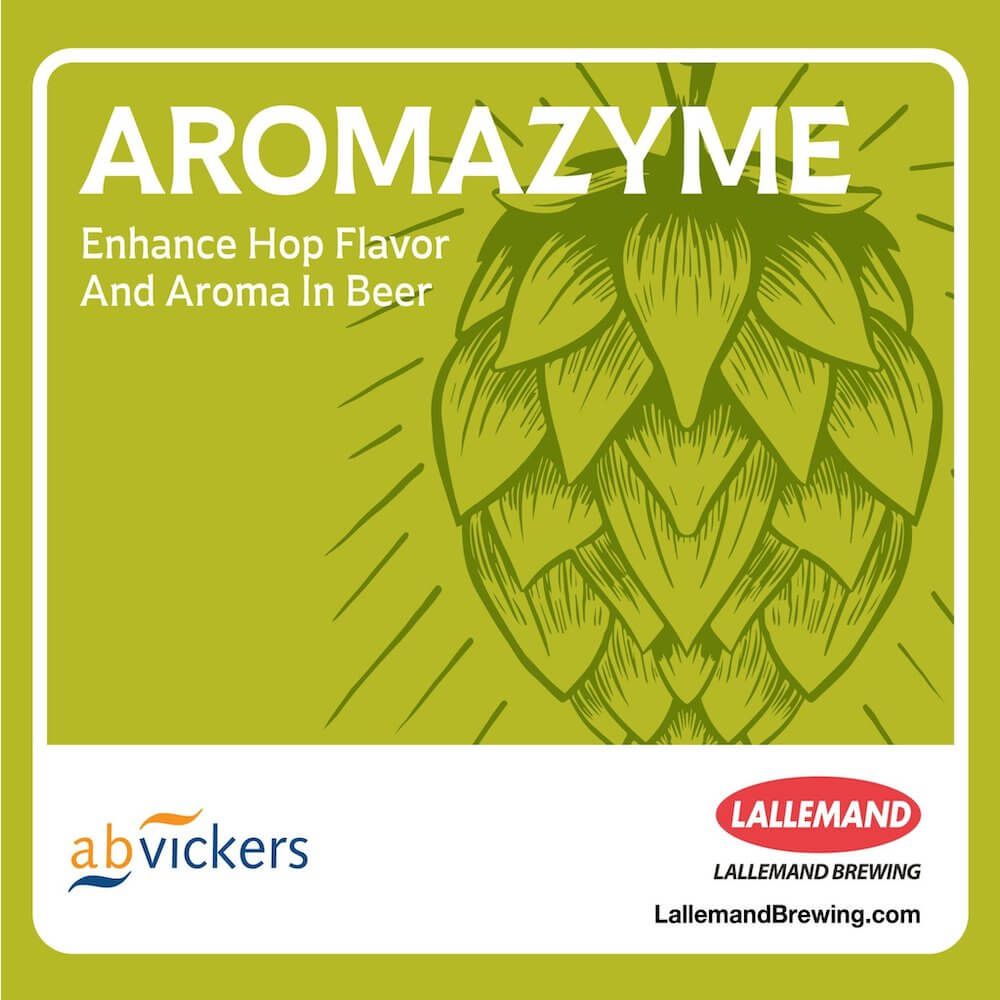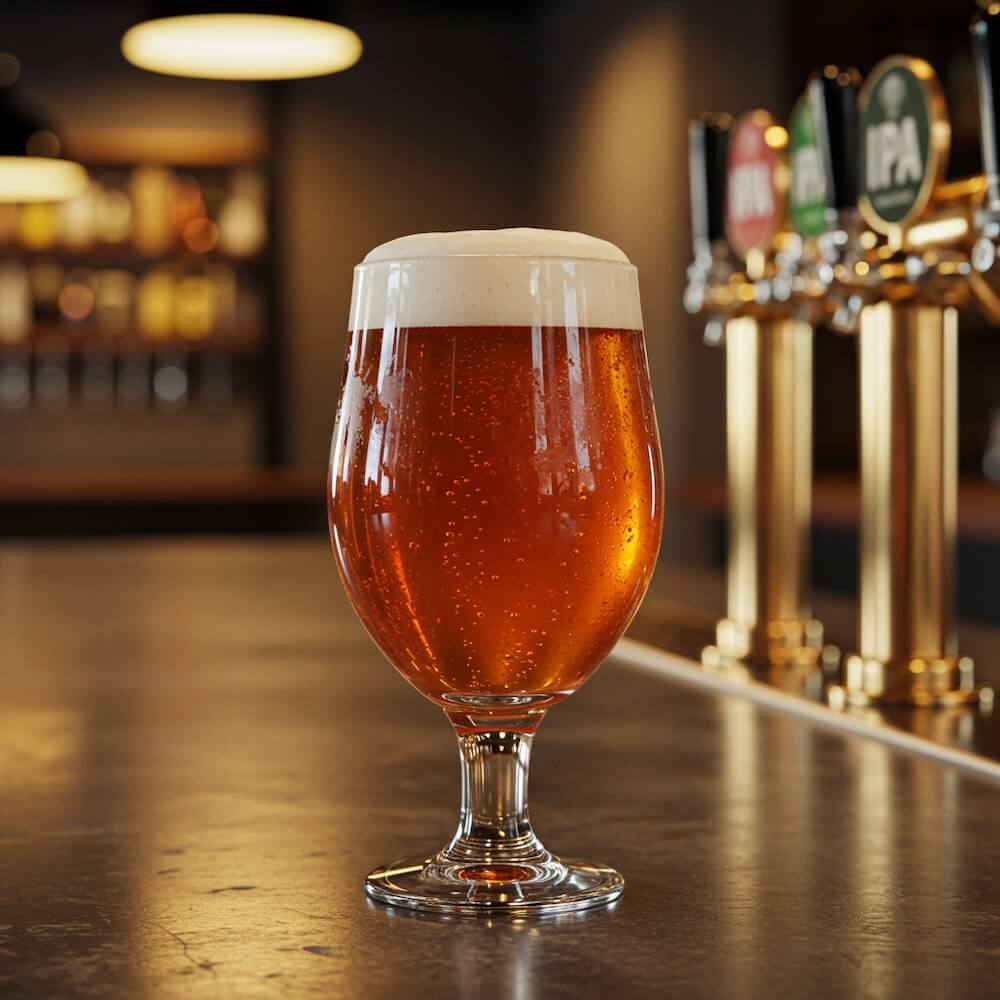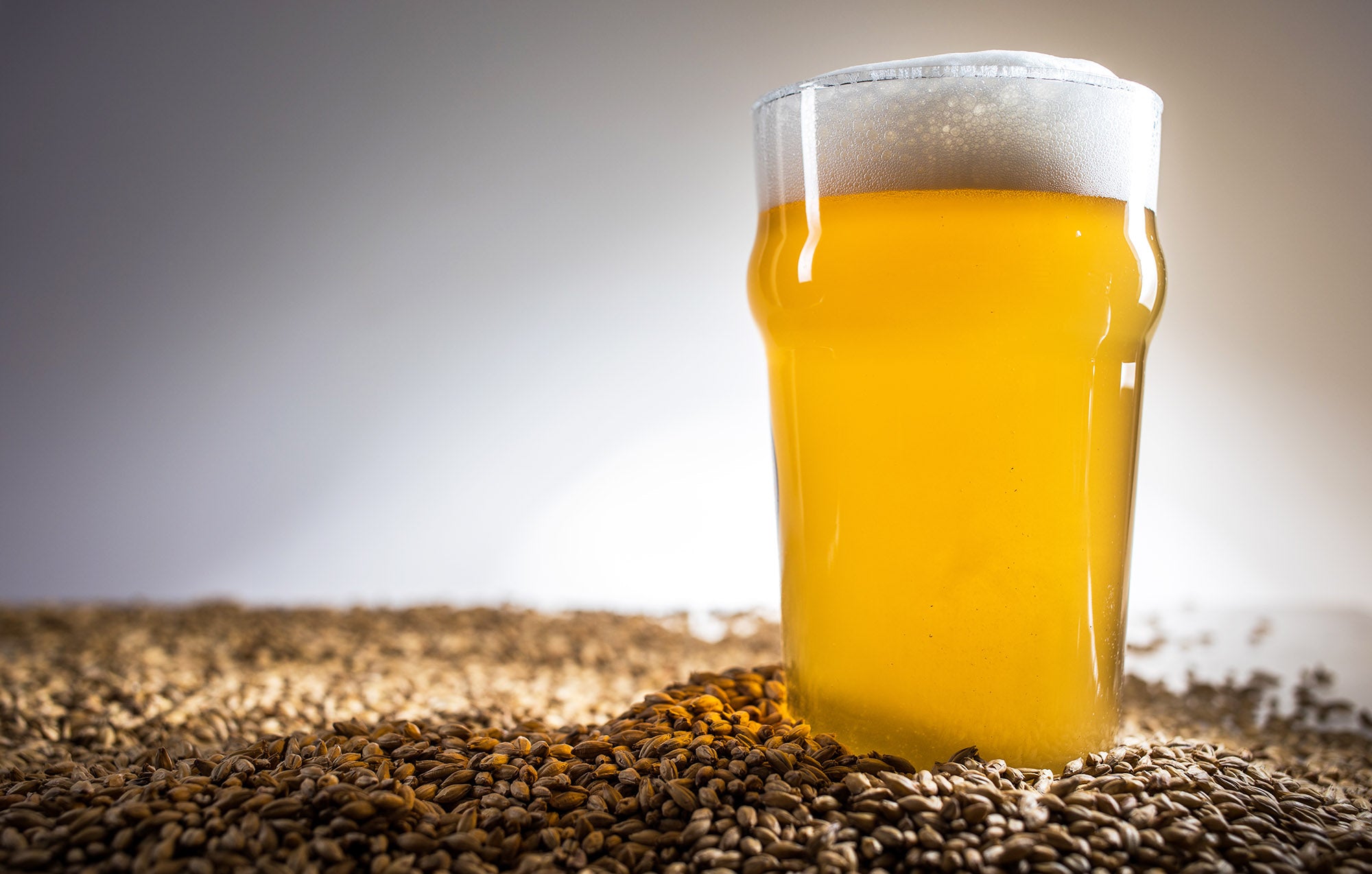Sort by:
Bentonite is a type of very fine clay that it is formed from volcanic ash and is a common additive used to clarify and fine wines. It’s great for removing protein haze and can be used to remove off aromas.
How Bentonite Works
The negative ions in Bentonite bond with positively charged particles in the wine that are causing a haze.
Because bentonite is negatively charged and dense when it does bond with a positively charged particle they both sink to the bottom of the fermenter.
It is possible to add bentonite to the wine at the beginning of fermentation (just before adding the yeast). This is one of the only fining/clearing agents that can be added pre-fermentation. During fermentation the co2 generated by the fermenting wine will mix the bentonite into the wine.
Bentonite is a fairly dense material and if it is not prepared correctly it will just collect at the bottom of your carboy and do nothing to clarify your wine. Here is the proper procedure for rehydrating and adding bentonite to your wine.
How To Use
Use at a rate of 0.2g - 1g per litre for white wine and 0.2g - 0.5g per litre for red wine. Use of bentonite in red wines should be limited because of its ability to reduce colour by adsorption of anthocyanins.
- Rehydrate the bentonite powder by vigorously mixing in water (10 x weight) at 60℃. The powder will have a tendency to clump together as it absorbs the warm water. Break up as many clumps as you can. This mixture is now referred to as a slurry.
- Store the bentonite slurry in a sanitised and airtight container for at least four hours. This allows the bentonite to become fully hydrated.
- Stir the bentonite slurry in your wine vigorously though not so vigorous that you introduce oxygen into your wine. A mix stir is perfect for this job.
- Re-attach your airlock and let stand for four to seven days or until clear. Most wines take about a week, however, heavy hazing can take longer to clear.The cooler your wine is kept the quicker it will clear.
Calcium carbonate (CaCO3) is a common substance found in rocks as the minerals calcite and aragonite (most notably as limestone, which is a type of sedimentary rock consisting mainly of calcite) and is the main component of pearls and egg shells.
In brewing calcium carbonate may be used during the mash to increase the mash pH (reduce acidity), however it may not increase mash pH as much as desired. Click here to read a detailed analysis of calcium carbonate in brewing written by A.J. deLange.
In wine making calcium carbonate may be used to reduce acidity levels in must. It should only be used before fermentation and will reduce tartaric acid levels before malic or citric acids. It does not require cold stabilisation to precipitate out like potassium carbonate, but it will take longer and may affect flavour.
Handcraft Supplies Campden Tablets for use in winemaking to sanitise fruit must or to preserve wines/ciders. Simply crush and dose as per instructions on label.
Can also be used to remove chlorine and chloramine from brewing water.
Approximately 100 tablets in a tamper proof and resealable tub.
Contains sodium metabisulphite.
Caution: Gives off toxic gas. Avoid vapours and contact with sensitive skin.
Handcraft Supplies Super Smoother adds body and a hit of oak character to wine, cider, or mead, instantly enhancing the finished drink. Simply add both sachets before bottling and stir well to mix. The combination of glycerine and liquid oak extract is designed to smooth out flavour and reduce harshness and aging times. For use in batches up to 23 L. See pack for full instructions.
Campden Tablets for use in winemaking to sanitise fruit must or to preserve wines/ciders. Simply crush and dose as per instructions on label.
Can also be used to remove chlorine and chloramine from brewing water.
Approximately 50 tablets in a tamper proof and resealable tub.
Contains sodium metabisulphite.
Caution: Gives off toxic gas. Avoid vapours and contact with sensitive skin.
Used to improve clarity for crystal clear beer and wine. Will also remove unwanted compounds resulting in smoother flavour. Sufficient for 250ml of bear or wine.
For 25 litres extract 250ml of beer or wine from the fermenter. Add 100ml of isinglass finings and mix well before adding back to the fermenter. Stir well and leave for 24 - 48 hours before packaging.
Keep refrigerated once open.
Mangrove Jack's Liquid Beer Finings help to clarify your beer; removing unwanted compounds and firming up natural sediment for a crystal clear beer.
Simply pour into your wort and leave the beer for 24 hours to allow for the sedimentation of yeast and trub.
Sufficient for up to 23 litres of beer.
This product is GMO free and made from fungal chitosan.
Suitable for Vegetarians and Vegans.
Contains sulphites.
A yeast nutrient complex that supports yeast health to improve fermentation of mead.
Autolysed yeast extract for dual-purpose use as a rehydration and fermentation nutrient in mead-making.
Yeast nutrients aid in providing an optimal environment for yeast to thrive in, leading to an all-round happier, healthier, and faster fermentation. The use of yeast nutrients can improve the overall flavour, aroma, and quality of the final product, helping you produce consistent mead every time.
Directions:
For staggered nutrient additions, add the necessary nutrients at the beginning of fermentation, and continue to add further nutrients as needed throughout the fermentation process according to the specific requirements of the recipe.
For best results use with:
Mangrove Jack's M05 Mead Yeast
Ingredients: 100% yeast autolysate.
Batch Size: Suitable for batch sizes 3-9 L, depending upon on ABV, sweetness, and yeast nitrogen requirements. Use part or multiple sachets as required.
Organic Nitrogen: Minimum 4 % w/w YAN on dry basis
GMO Status: GMO Free
Net Weight: 12 g (0.42 oz)
For best results, use with Mangrove Jack's Craft Series Yeast.
Potassium metabisulphite is used to introduce sulphur dioxide into wine. Small quantities of sulphur dioxide are used to control wine microbes, and sulphur dioxide also reduces wine oxidation. When sulphite is added to wine, it produces about half its weight in SO2 (about one gram of sulphur dioxide is produced when two grams of sulphite are added to the wine).
Here is a link to an excellent article on the use of metabisulphate.
Sodium Metabisulphite is a sulphur based compound that is used primarily to sterilise wine and cider making to kill bacteria and to inhibit the growth of most wild yeast.
It can also be used to eliminate both free chlorine and the more stable form, chloramine, from water.
One gram of metabisulphite will impart approximately 60 parts-per-million of sulphur dioxide (SO2) to each litre of wine.
As a guide, to sanitise wine must add 0.2 g of metabisulphite per litre of juice. Pre-dissolve it in a small quantity of water before adding to the must. Allow the must to ventilate in an open container for 24 hours before adding yeast.
Here is a link to an excellent article on the use of metabisulphate.
Infusion spirals provide simple and fast extraction of oak aroma and flavour at a fraction of the price of a barrel. They are also really easy to add to bottles or a carboy and remove afterwards, there is no need to filter out chips.
These can be used in spirits, wine, beer and cider.
Wine: Use 1 spiral per 11 to 23 L for 6 weeks or until desired flavour is achieved.
Beer, spirits and cider: Use 1 spiral per 11 L for 3 - 6 weeks or until desired flavour is achieved.
Infusion spirals provide simple and fast extraction of oak aroma and flavour at a fraction of the price of a barrel. They are also really easy to add to bottles or a carboy and remove afterwards, there is no need to filter out chips.
Use 1 spiral per 1 L of beer, spirit or cider and leave for
1 to 2 weeks, or until desired flavour is achieved.
Infusion spirals provide simple and fast extraction of oak aroma and flavour at a fraction of the price of a barrel. They are also really easy to add to bottles or a carboy and remove afterwards, there is no need to filter out chips.
These can be used in spirits, wine, beer and cider.
Wine: Use 1 spiral per 11 to 23 L for 6 weeks or until desired flavour is achieved.
Beer, spirits and cider: Use 1 spiral per 11 L for 3 - 6 weeks or until desired flavour is achieved.
Infusion spirals provide simple and fast extraction of oak aroma and flavour at a fraction of the price of a barrel. They are also really easy to add to bottles or a carboy and remove afterwards, there is no need to filter out chips. These can used in spirits, wine, beer and cider.
Wine: Use 1 spiral per 11 to 23 L for 6 weeks or until desired flavour is achieved.
Beer, spirits and cider: Use 1 spiral per 11 L for 3 - 6 weeks or until desired flavour is achieved.
Pectinase breaks down the pectins in fruit, releasing juice and flavour and enhancing yield. It is used primarily in fruit and white wine making. Pectinase should be added whilst the fruit is being crushed.
Prepare 1 tablespoon (4g) of Pectinase per 5kg of fruit in a 100ml warm water solution. Stir through the pulp. Leave for a minimum of 6 - 12 hours before pressing.
Pulp: Add 1 tsp per 5L directly to pulp, leave two hours @ 50°C before diluting for main fermentation.
Keep refrigerated.
Vintner’s Harvest Pectinase 75g pack allows you to break down the fruit pectins during your fruit crush. This releases more juice and flavour into your wine, enhancing your yield.
Usage: Add 1 Tbls (4g) of Pectinase per 5kg of fruit (in 100ml warm water). Stir through the fruit pulp and leave to sit for 6 – 12 hours.
Treats up to 100L.
Wine Nutrient supports the yeast to achieve an undisturbed, clean fermentation, free from residual sugar. Can help prevent "untypical ageing off-flavour". Helps sluggish musts and worts to fast and complete fermentation.
For low fruit & concentrate table wines (rapid fermentation) use 24g to 30g per 23L.
For medium to hgh fruit & concentrate table wines (slow fermentation) use 12g to 18g per 23L.
Ingredients: Diammonium phosphate (DAP), magnesium sulphate, magnesium carbonate, vitamins, trace minerals.
